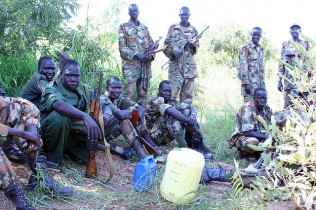
Human Rights Watch, the organization committed to defending the basic human rights of people worldwide, has publicly called for both the SPLA and the Sudanese government to halt the practice of recruiting children under the age of 18 for military duty. In spite of both organizations’ promises to do so, it seems that neither side is holding true to their word.
“Despite renewed promises by both government and opposition forces that they will stop using child soldiers,” says Human Rights Watch’s Africa Director, Daniel Bekele. “Both sides continue to recruit and use children in combat. In Malakal, government forces are even taking children from right outside the United Nations compound.”
The Extent of Child Recruitment
The instability of the Sudanese nation greatly affects the country’s accessibility to potential visitors. In fact, many tourists should consider actively avoiding financially supporting a government that allows this type of injustice to continue within its borders.
A startling report released by the international organization UNICEF in April looked at both sides of the South Sudanese conflict determined that a staggering 9,000 child soldiers have been forced into service since the fighting’s inception in December 2013. While rebel forces did release 3,000 child soldiers back in January, the recruitment practice is ongoing.
This practice can be devastating to the early developmental period of children’s lives and that’s something that both Bekele and the Human Rights Watch organization understand all too well. “South Sudanese children’s lives are being devastated by conflict, with children once again going to war instead of to school. Both sides should stop recruiting children, and hold those responsible to account,” says Bekele.
Raising Awareness and Taking Action
Moving forward, it’s imperative that international organizations, such as Human Rights Watch, continue to raise awareness surrounding the recruitment of child soldiers in Sudan. As an individual, there are also steps to raise awareness and, most importantly, make sure that travel choices do not continue to support this unjust practice. Recently, the UN Children’s Fund has repeatedly demanded the release of all child soldiers.
Ethical travel means considering how your movements impact the people, the economy, and the environment in the places you visit. While Sudan may be an attractive destination for some, it’s important to consider safety and security when traveling to a country mired by conflict and human rights injustice. Considerations for travel to Sudan during times like these would go well with reading tips for safe travels in or through Sudan.
If you’d like to learn more about the current situation in South Sudan, please check out Human Rights Watch’s South Sudan page. If you’d like to join a campaign to raise awareness of the need to end recruitment of child soldiers, check out Child Soldiers International to find out how you can support the movement.
Read Ethical Traveler's Reprint Policy.
